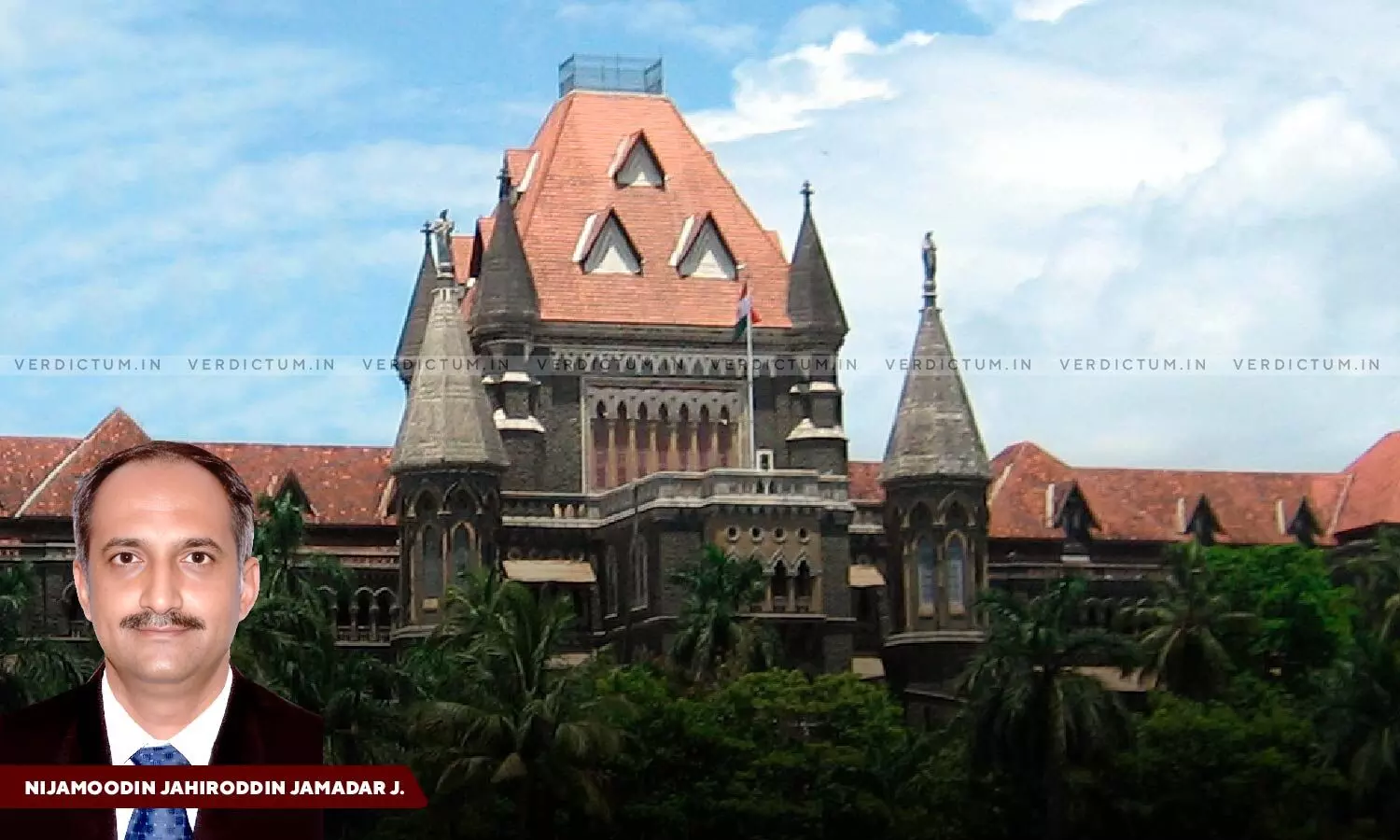
Justice N.J. Jamadar, Bombay High Court
Civil Aspect Of Fraud Can Form A Subject Matter Of Arbitration: Bombay High Court
 |
|The Court said that allegations of fraud, primarily concerning civil matters, do not prevent the dispute from being referred to arbitration, as such claims do not invalidate the underlying contract or involve public implications.
The Bombay High Court held that allegations of fraud, when confined to the civil domain and without wider public implications, do not render a dispute non-arbitrable.
A Single bench of Justice N.J. Jamadar observed, “The non-arbitrability of the dispute, in the backdrop of the allegations of fraud, has also been subjected to two tests. First, whether the alleged fraud affects the underlying contract, rendering it void. Two, whether the fraud is restricted to the affairs of the parties, inter se, without any implication in the public domain. To put it in other words, the civil aspect of fraud may legitimately form a subject matter of arbitration.”
Senior Advocate Abhay S. Khandeparkar appeared for the Petitioner, while Advocate Sumedh S. Modak represented the Respondents.
The Court added, “A distinction has, therefore, been made between the cases involving serious allegations of fraud and allegations of fraud ‘simplicitor’. Lest, it would give a long leash to a party to obviate the dispute resolution mechanism of choice, simply by making the allegations of fraud with a view to derail the resolution.”
Brief Facts
The dispute arose between the parties out of a partnership firm constituted by three individuals. After the demise of one of the partners, his legal representatives filed a suit for rendition of accounts and determination of share. The Defendant sought reference to arbitration based on the arbitration clause in the partnership deed. However, the Trial Court refused on the ground that there existed allegations of fraud. Upon filing an appeal under Section 37 of the Arbitration and Conciliation Act, 1996 ( Arbitration Act), the Court dismissed it on the ground that one of the partners had not admitted the existence or enforcement of the partnership deed, which contained the arbitration clause.
The Petitioner contended that both courts erred in declining reference to arbitration despite the existence of a clear arbitration clause in the partnership deed, and that the allegations of fraud were related only to the deed of reconstitution, not the original partnership deed, which contained the arbitration clause. The Petitioner further submitted Clause 17 of the partnership agreement specifically provided that disputes would be referred to arbitration and would bind not only the parties but also their legal representatives.
The Respondent argued that legal representatives of a deceased partner could not be compelled to arbitrate as they were not parties to the arbitration agreement, and that the arbitration agreement was not enforceable against non-signatories.
Reasoning of the Court
The Court noted that the jurisdiction of the court was extremely limited under Section 8 of the Arbitration Act. “In keeping with the principle of minimal judicial interference in the matter of arbitration and respecting the party autonomy, where the parties have exercised the option to resolve the disputes in a swift and inexpensive manner through a forum of choice, the non-arbitrability of the dispute for the mere reason that the adversary made allegations of fraud, gave way to a more balanced approach. A distinction has, therefore, been made between the cases involving serious allegations of fraud and allegations of fraud ‘simplicitor’. Lest, it would give a long leash to a party to obviate the dispute resolution mechanism of choice, simply by making the allegations of fraud with a view to derail the resolution”, it added.
The Bench noted that non-arbitrability due to fraud is tested on two grounds- whether the fraud affects the contract’s validity, and whether it concerns only the parties involved without public implications. It explained, “In contemporary arbitration, the broad proposition that the allegations of fraud are non-arbitrable is not favoured. If an allegation of fraud can be adjudicated upon before a civil court, there is no justifiable reason to exclude such disputes from being resolved through arbitration”
The court noted that Clause 7 of the Deed of Reconstitution explicitly stated that, subject to the changes introduced by the reconstitution, all other terms in the original Deed of Partnership governed the rights and liabilities of the partners, therefore, it was unclear how the existence of Deed of Partnership containing the arbitration clause could be denied.
The Court observed that in the present case, the allegations of fraud were in relation to the execution of deed of Reconstitution of the firm and not in relation to the deed of Partnership which contains the arbitration clause and that the allegations of fraud in the instant case would not have any implications in the public domain. The Court stated, “Primarily, the allegations of fraud revolve around civil aspect. Consequently, the civil aspect of fraud can legitimately form a subject matter of Arbitration. Therefore, the learned Civil Judge was clearly in error in declining to refer the disputes to Arbitration on the ground that there were allegations of fraud and preparation of false documents.”
Consequently, the Court allowed the petition, set aside the impugned orders, and referred the parties to arbitration by appointing a sole arbitrator.
Cause Title: Bholashankar Ramsuresh Dubey v. Dinesh Narayan Tiwari & Ors. (Neutral Citation: 2025:BHC-AS:17495)
Appearance:
Petitioner: Senior Advocate Abhay S. Khandeparkar, Advocates Rushikesh Bhagat, Rohit P Mahadik, Farhan Shaikh, Apoorva Khandeparkar, Vaibhav Kulkarni, Sudarshan Bhilare,
Respondents: Advocate Sumedh S. Modak